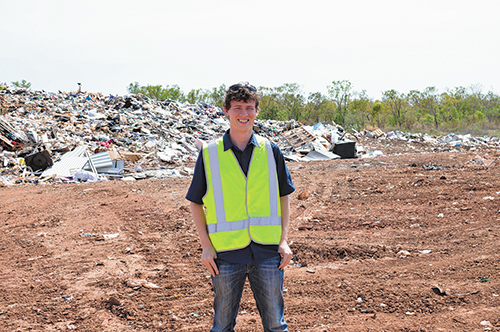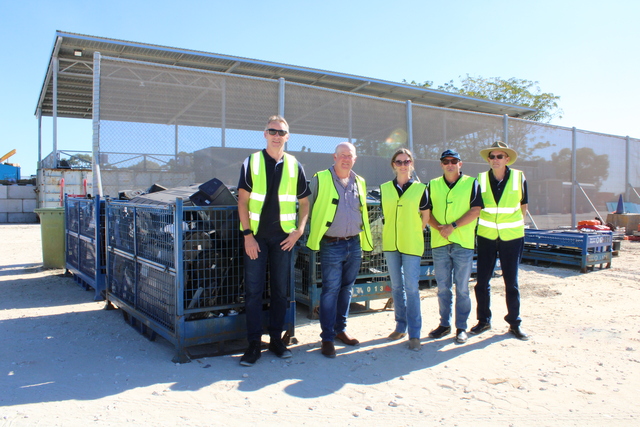The rubbish adding to landfills in the Northern Territory’s Big Rivers region could soon be providing financial and environmental benefits to its three Regional Councils, thanks to a collaboration driving a rethink on remote waste management.
The Big Rivers Waste Management Working Group (BRWMWG) comprises representatives of Roper Gulf Regional Council, Victoria Daly Regional Council and West Daly Regional Council, and was funded by the Northern Territory Department of Health, the Councils and in-kind support from Katherine Town Council.
BRWMWG Coordinator Liam Harte said its purpose was to assess how waste was being managed at landfills operated by the Regional Councils, and to provide expertise and support to improve operational practices for the betterment of communities and the environment.
“The main waste management issues in the communities is that they are, in many cases, using out-dated landfilling methods in landfills, which were improperly designed without separating recyclable and hazardous materials,” he explained.
“Addressing this will go a long way towards improving the health and environmental outcomes from these sites.”
Resource recovery has long been overlooked at remote Waste Management Facilities due to the costs involved with transporting materials to a processing centre, but Mr Harte said he believed there was potential for the BRWMWG to lead a unified approach that would provide the economy of scale needed to make recycling financially viable.
Roper Gulf Regional Council Director of Council and Community Services Sharon Hillen said exploiting resource recovery opportunities would allow the organisation to create an additional revenue stream and boost local employment.
“Resource recovery can be a viable industry, and an employer of unskilled labour in remote areas, if we can identify a marketplace for the Big Rivers region’s Councils as a collective,” she said.
As part of the BRWMWG initiative, every landfill in the Roper Gulf region will be inspected, with facilities in Borroloola, Ngukurr and Numbulwar set to undergo the most radical makeovers in order to be eligible for Environmental Protection Agency licencing under the Waste Management and Pollution Control Act.
The Council has secured several grants, which it will combine with its own sourced revenue to fund the upgrade of identified landfills within its Local Government Area.
Mrs Hillen said the grant allocation demonstrated that the Government recognised the importance of waste management in remote communities, adding that the creation of the BRWMWG had allowed the Council to prioritise changes to infrastructure and operations at its three largest landfills.
“Government understands the huge quantum leap Council has to make to get our dumps up to scratch.
“Council certainly would not be at this point today if we didn’t have the support and the level of technical expertise that the group has brought to the table.”








